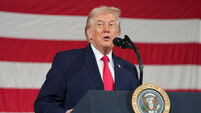Brits say £4m per medal ’worth every penny’

The team arrived in Brazil with the target of winning 48 medals to make Rio 2016 Britain’s best ever ‘away’ Games, but ended up with 67 medals — two more than London’s remarkable haul — and second in the medal table ahead of China.
“We’re making sporting history — 67 medals, nearly 130 medallists, across 19 sports,” said UK Sport chief executive Liz Nicholl.














